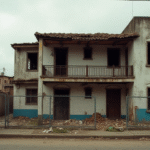Background on the Blackout and Its Impact
On Monday, a massive power outage left Spain and Portugal without electricity for several hours, causing chaos and disrupting daily life. The incident prompted Spanish authorities to investigate the causes, with suspicions of a possible “cyber attack” raised by both the government and judicial authorities.
Government and Judiciary’s Response
Spanish Prime Minister Pedro Sánchez convened an emergency meeting with representatives from major energy companies, including Endesa and Iberdrola, to request their collaboration in the investigation. Sánchez assured the public that necessary measures would be taken to prevent a recurrence of such an event.
The National Court in Madrid, responsible for complex cases, also initiated an investigation to determine if there was any “cyber sabotage,” which could be classified as a “terrorism-related crime.”
Ruling Out Unusual Weather Conditions
Eduardo Prieto, director of the Spanish electric grid operator RED, stated that initial analyses did not indicate a cybersecurity incident as the cause of the blackout. The Portuguese government echoed this sentiment, asserting that there was no evidence of cyber manipulation.
Sánchez’s Meeting with Energy Companies
Following the meeting, Sánchez emphasized the need for improvements to ensure reliable electricity supply. He also distanced the blackout from Spain’s lack of nuclear power, rejecting criticisms from the far-right Vox party.
Tragic Consequences
At least three individuals, described as elderly with special needs, died in a Galician town during the blackout. Authorities found a high concentration of carbon monoxide and a portable generator in their home.
Technical Analysis of the Blackout
Prieto explained that the blackout was triggered by a “strong imbalance in power flows” combined with a significant loss of generation, causing the Iberian Peninsula’s electricity system to disconnect from the rest of Europe’s grid and collapse.
The outage occurred within five seconds, with a 60% loss of energy in the grid.
Recovery Efforts
By Tuesday, both Spanish and Portuguese electric grids resumed full operations. The return of power brought relief to many, enabling the resumption of train services on major routes like Madrid-Barcelona and Madrid-Sevilla.
Challenging Day
Despite the blackout, most schools in Spain reopened. Many people relied on portable radios, candles, and gas bottles during the power outage. The incident highlighted society’s dependence on technology, as people in Madrid and Barcelona walked across the cities to reach their homes due to the lack of public transportation.
Key Questions and Answers
- What caused the blackout? Initial analyses suggest a significant loss of generation combined with a strong imbalance in power flows, causing the Iberian Peninsula’s electricity system to disconnect from Europe’s grid.
- Was there a cyber attack? Authorities are investigating the possibility of cyber sabotage, but initial analyses by RED and Portugal’s government did not find evidence of a cybersecurity incident.
- What measures are being taken to prevent future blackouts? Spanish Prime Minister Pedro Sánchez has assured the public that necessary measures will be taken to prevent a recurrence of such an event, including improvements to the electricity supply system.
- Were there any fatalities related to the blackout? At least three individuals, described as elderly with special needs, died in a Galician town during the blackout. Their deaths are believed to be related to a portable generator and high carbon monoxide levels.






